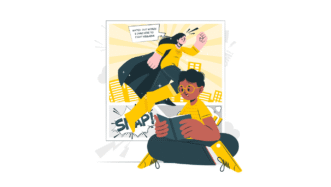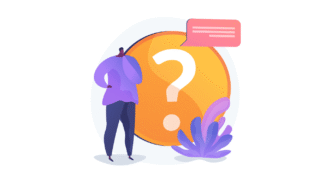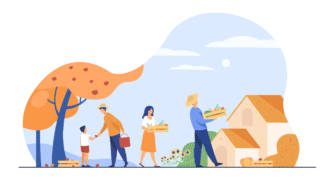LESSON OVERVIEW
In this lesson students talk about free time, do a quiz, discuss an article and more tips on how to make the best out of their free time.
C2 / Proficiency30 minCritical Reading ClubUnlimited Plan
This is a Critical Reading Club worksheet. With this format, students need to read an online article at home and do the exercises in the classroom. Learn more about how to use such worksheets and their benefits in our post.
ACTIVITIES
The worksheet starts with a short warm-up. Students look at three situations from their lives (e.g. having a 20-min break) and say what they would do with their free time in each of them. Then, students move on to a quiz. The quiz has questions that help students decide if they have a healthy relationship with free time. It also contains a lot of useful and new vocabulary from the article (e.g. ditch, be strapped for, hamper, sweet spot, etc.). A teacher needs to make sure students understand the meaning of the words. There’s also a glossary for the teacher at the end of the worksheet. The lesson finishes with a discussion related to free time, the article and the tips on how to use free time wisely.
ARTICLE
WORKSHEETS
Subscribe to unlock these and many other Standalone lesson lesson plans with the Unlimited plan
Subscribe













That was a very useful lesson!
I have adapted a little to the context of my institution and group: I always start with a 10-tip guessing game related to the topic of the lesson (Free Time) so students can start “shaking” their world knowlege and creativity and guess the topic / title of the lesson. After that I do as per plan. In the sixth paragraph of the text assigned as a pre-homework, the autor mentions the “5-senses grounding meditation” and I explore it a little more. Since it is very common for people to become absent-minded or not pay attention to their surroundings when they are in a place in their free time: I show them a video explaining the technique and we all give it a go in class. They loved it.
Overall, it was a fruitful lesson and students could collect lots of new useful vocabulary. (It is a good idea to recap what they have just learnt at the end of the lesson and ask for evidences: “Have we worked on grammar today? Give me example. (Elicit it from students), “Have we worked on vocabulary today? Give me examples (Elicit from students)”. This way, students will leave the lesson with a sense of achievement and certain that they have been exposed to a lot of cool and new pieces of language.
Cheers!
Wow, that sounds like an amazing lesson 🙂 Thanks for sharing your ideas!
Sorry, some typos. * examples / * Pieces of evidence.
The article is great and the lesson plan sounds great, but I can’t access the e-lesson plan.
Sorry for the inconvenience, but it’s all fixed now 🙂